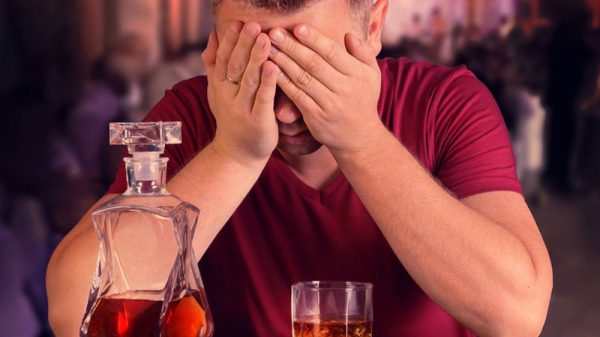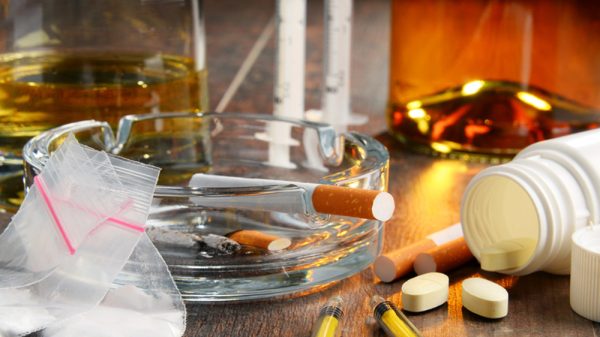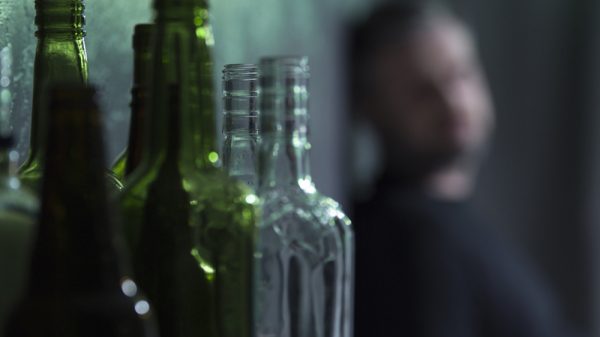Alcohol is available to adults in nearly all restaurants, bars, grocery stores, and liquor stores. In some ways, alcohol is so embedded in our culture that it may seem weird or abnormal not to drink. Even excessive drinking and binge drinking have become normalized to some extent. However, as you’re about to find out, there are numerous benefits of not drinking alcohol, and the benefits outweigh the negatives any day. Whether you have an alcohol abuse disorder, occasionally drink more than you should, or socially drink on a regular basis, you will reap the health benefits of giving up alcohol.
If you drink alcohol and you are considering quitting; do it. Here’s why.
1. You Will Sleep Better
When you stop drinking, you will find that you sleep much better than when you fall asleep inebriated. Though it may feel like alcohol helps you sleep better, alcohol actually worsens the quality of sleep. When we drink, the body is only able to focus on ridding the body of alcohol. When we wake up in the morning, we’re more likely to feel tired and sluggish. Plus, going to bed inebriated increases the likelihood that you’ll wake up in the middle of the night.
On the other hand, when we sleep sober, the body can channel its resources and energy towards healing the body from everyday activities. In the morning, you are more likely to feel refreshed and ready to start the day.
2. You’ll Have More Energy
Your drinking habits may be affecting your energy levels. An energy boost is a positive side effect of being sober. No one enjoys a hangover after imbibing too many alcoholic beverages. But even if you only have a drink or two, you may feel a little more sluggish the next day. Energy levels are tied to the reduction in systemic inflammation and better sleep associated with not drinking.
3. Your Liver Can Regenerate
The liver is one of the most vulnerable organs to chronic, excess drinking. Drinking is a risk factor for developing liver conditions like fatty liver disease and liver cirrhosis. The liver is responsible for processing alcohol so that it is broken down into a nontoxic form and can be excreted from the body.
Frequent exposure to alcohol increases oxidative stress and inflammation in the liver. Heavy drinkers tend to have a higher risk of experiencing liver damage and liver-related health problems. Over time, drinking can lead to conditions like fatty liver disease, which is also called hepatic steatosis. Luckily, quitting alcohol and eating a healthy diet can help reverse fatty liver disease. Even if liver disease has progressed to liver fibrosis or liver cirrhosis, the liver still may be able to repair and function more effectively.
However, the liver is a remarkable organ that has the capacity to heal and regenerate after it’s been damaged. When you stop drinking, your liver may be able to repair from alcohol-induced damage.
4. Your Skin Will Be Clearer
Quitting alcohol can give you a glowing, rejuvenated complexion. Alcohol impedes the normal absorption of many key nutrients that we get from food, which can cause a washed-out complexion. The oxidative stress associated with alcohol intake may even interfere with hormone levels and lead to more breakouts and hormonal acne.
Moreover, alcohol is a diuretic, meaning it causes dehydration. This can cause the skin to become dried out. When you stop drinking, the skin will appear more moisturized, hydrated, and smoother in texture.
5. You Will Build More Muscle
When you stop drinking, the body will be more equipped to recover after a tough workout and synthesize muscle tissue.
Chronic or frequent drinking can interfere with the synthesis of muscle tissue. A study conducted by a collaboration of researchers in Australia, Canada, the United Kingdom, and the United States evaluated the impact of alcohol consumption on protein synthesis in 8 male subjects. (1) Results revealed that alcohol consumption reduced protein synthesis in the body during the recovery period, even when the individual also consumed protein. (1)
The researchers concluded that alcohol consumption interferes with muscle synthesis and likely impacts both recovery and future performance. (1) If you want to maximize your muscle gains, steer clear of alcoholic beverages.
6. You May Lose Weight
When you stop drinking, you may watch the scale go down several pounds. Alcohol is packed with empty calories that are quickly turned to glucose and stored as fat throughout the body. Not to mention the extra sugar and carbs present in wine or spirits mixed with soda or juice. Regular drinking may contribute to weight gain and obesity. Simply by quitting drinking, you slash your calorie intake dramatically. This may create a calorie deficit, meaning that you are burning more calories than you consume. When this is the case, you will likely notice weight loss.
However, keep in mind that chronic, heavy drinking may have an opposite effect on the body. Muscle wasting, weight loss, and bruising are symptoms of liver cirrhosis associated with long-term, heavy drinking.
7. Less Stomach Irritation
Once you stop drinking alcohol, you may notice that you suddenly have fewer stomach issues. If you have heartburn or gastroesophageal reflux disease, you may notice a resolution of your symptoms. Have you ever noticed stomach irritation in the aftermath of a night of drinking? This is because alcohol is known to cause stomach irritation, increase stomach acid, and inflict oxidative stress on cells within the digestive system.
8. Better Relationships with Friends and Family
Alcohol affects relationships with others and can cause us to say and do things that we later regret. Maybe too many glasses of wine caused you to snap at your partner or say something unsavory to your sister. Because alcohol lowers inhibitions, we often don’t think before we act or speak, making it much more difficult to censor our speech or make the best decisions at the moment.
You will also enjoy better conversations with others when you stop drinking. Though you might feel that drinking makes you more social, this effect is generally only temporary. In the grand scheme of things, drinking may make you more sluggish and less social.
9. More Time and New Hobbies
The time and energy that comes with quitting alcohol can create the opportunity for new hobbies. You may be more inclined to try a new activity that you otherwise wouldn’t have. For example, you might be more inclined to spend time hiking or participating in community events.
10. A Clearer Mind
When you stop drinking alcohol, you will likely feel like you can think more efficiently and clearly. Drinking too much alcohol can cause oxidative stress in the brain even when you’re not inebriated, which can cause neurotransmitters to misfire. This, in turn, can lead to brain fog and a sluggish mind. When you stop drinking, the brain has a chance to repair itself from oxidative stress, so you can enjoy more mental energy and clearer thinking.
11. Improved Mood
Is alcohol a depressant? Alcohol is a central nervous system depressant, meaning that it decreases the activity of the central nervous system. While this mechanism may temporarily cause relaxation and euphoria, the inevitable aftereffects include anxiety and a depressive mood. When you stop drinking, alcohol can no longer interfere with the central nervous system, helping you feel more balanced, energetic, and happy. Overall, stopping drinking will likely improve your mental health significantly.
Some individuals find that they feel a little more anxious when they stop drinking. Because alcohol is a central nervous system depressant, some individuals reach for alcohol to help take the edge off when they’re feeling anxious. However, in some cases, alcohol consumption can mask an underlying anxiety disorder, especially if you have high functioning anxiety. If you feel a substantial and permanent increase in anxiety after you quit drinking, talk to your doctor and a licensed therapist.
12. Better Heart Health
Being sober is good for your heart. Drinking too much alcohol on a consistent basis means that the heart is exposed to alcohol regularly. As with other tissues in the body, the heart is vulnerable to oxidative stress from alcohol exposure. Excess drinking over time can weaken the heart muscle and increase the risk of developing high blood pressure and heart disease. Even in the short term, binge drinking can put stress on the heart and have negative effects on blood pressure.
Although some studies show that a moderate intake of alcohol may have a positive effect on HDL cholesterol (the good kind of cholesterol), it’s important to emphasize that any positive impact is eliminated with higher alcohol intake. (2)
An alcohol intake that exceeds the recommended limit increases systemic inflammation and may worsen cholesterol levels.
The impact of alcohol on heart health seems to be dependent on the amount of alcohol you drink, with heavy drinkers being at an increased risk for developing heart conditions. In general, going alcohol-free can improve your cardiovascular health, especially if you drink in large quantities.
13. Reduce Cancer Risk
Stopping drinking may reduce the risk of developing several different kinds of cancer. Research shows a link between alcohol consumption and several types of cancer, such as pancreatic cancer, breast cancer, liver cancer, colon cancer, and cancer that affects the mouth and esophagus. (3) There are several proposed mechanisms that may explain the link between alcohol and cancer. Both ethanol and it’s metabolized byproduct acetaldehyde are characterized as carcinogens. Scientists believe that these components increase the risk of cancer by interfering with immune system function and increasing the concentration of reactive oxygen species in the body.
When there is an increase of inflammation and reactive oxygen species in the body, this creates a state called oxidative stress. Increased levels of oxidative stress in the body increase the risk of cancerous cells multiplying and creating tumors.
To slash your cancer risk, steer clear of drinking alcoholic drinks. It might preserve your long-term health.
13. Saving Money
Finally, quitting alcohol is kind to your bank account. Alcohol is expensive! Think about how a dinner bill can quickly double once drinks are included. Combined with money spent on drinks at happy hour, bottles of wine, and other alcoholic beverages, you will save a significant amount of money when you stop drinking. For fun, once you stop drinking, try adding up money that you would be spending on alcohol. Put that money in savings and watch your account grow. You might be surprised by how much money was being allocated towards alcohol each month.
Precautions and Other Things to Consider
Are the benefits of not drinking alcohol for a year the same? Yes, and the longer you avoid drinking, the more benefits you will enjoy.
Keep in mind that if you have a substance abuse disorder and are physically dependent on alcohol, you will go through alcohol withdrawal when you suddenly stop drinking. The detox process is a critical part of breaking an alcohol addiction. If you plan to detox from alcohol at home, it’s important to taper your alcohol intake instead of stopping cold turkey, since severe alcohol withdrawal symptoms can be fatal. However, in any case, always seek medical advice when you are planning to stop drinking if you are physically dependent on alcohol.
If you are worried you may be struggling with alcohol addiction or alcohol use disorder, don’t hesitate to reach out for support. Doctors, therapists, treatment centers, support groups like Alcoholics Anonymous, and trusted friends and family are vital resources when seeking recovery from alcoholism. Attending AA meetings and surrounding yourself with sober friends can help you maintain a network to support your sobriety.
Conclusion: Benefits of Not Drinking Alcohol
Dry January and other no-drinking fads are popular for a reason; people feel better when they don’t drink. The effects of alcohol extend to nearly all parts of the body, including the liver, heart, brain, and skin. Heavy drinking is particularly detrimental to your health and well-being. If you are considering giving up alcohol, it’s definitely worth a try because of the numerous associated health benefits. Not only will you feel better in your day-to-day life, but you will also decrease your chances of developing conditions like fatty liver disease. Overall, abstaining from alcohol will support your overall health and well-being while also improving your quality of life.

References:
(1) https://www.ncbi.nlm.nih.gov/pmc/articles/PMC3922864/























